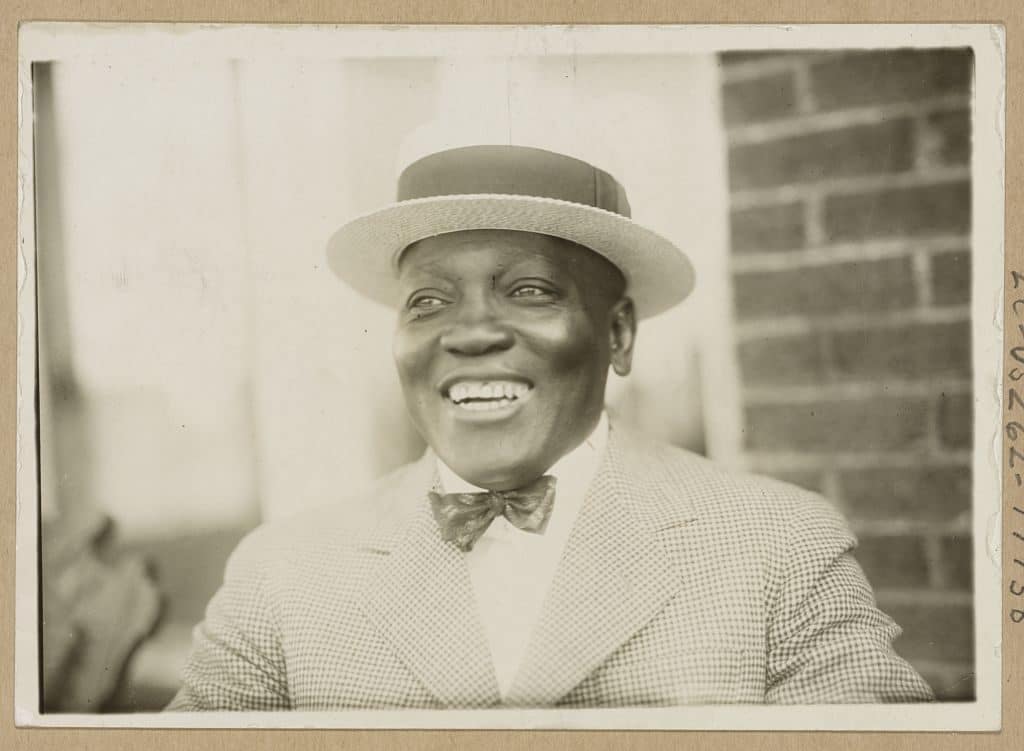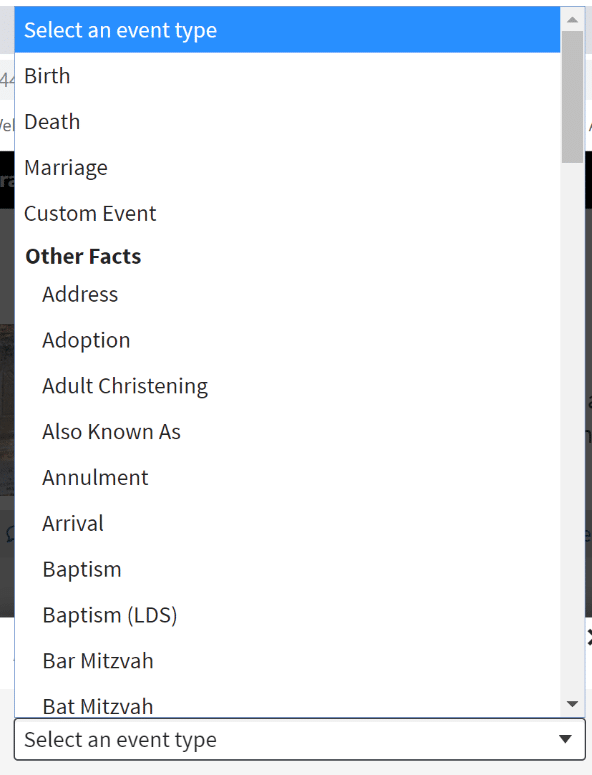By Patricia Hartley
When you first set out to research your family history, you probably started with a basic tree – online or off. And the information required to complete such a tree (or chart) is pretty straightforward; you simply fill in your ancestors’ names, birth dates and places, marriage details, and death information…then you go on to the next generation.
And, in truth, this is as far as many people ever go with their trees. They gather the most basic details and move on, trying to add as many names as they can.
But is this really all you want to know about your family members’ lives? Or, a better question to ask is, is this all you really need to know about each person in your tree?
In the early days of your genealogical quest, the answer might be yes. Completing a simple tree might be daunting enough for the time being. But as you try to extend or expand your family lines and get more curious about how and where your ancestors lived, this will likely change. You’ll want to know more about each and every person–well beyond just the dates and locations that defined only three points in their lives.
Once you start that deep dive into your ancestors’ existences, there are plenty of rabbit holes in which you could lose yourself. Just think–how many random pieces of information about you are out there in the universe today? Of course living in the digital age is different from the 19th century, but there are still lots of tidbits to be uncovered about great-great-grandma Stella.
Ancestry.com’s tree, for instance, offers fields for 75 different facts from “address” to “will” for each individual person, plus the option to create your own custom events.
Of course, we can’t fill in all of these details. Many of them don’t even apply. However, there are some key things that you should make sure and gather for each and every individual. Things that will make the task of expanding your research seem manageable, but will still help you explore your family’s past in greater detail.
It may be impossible to find them all for each person (especially as you move back through time), but making an effort should have a big impact on your research.
For more help with exploring the fascinating details of your ancestors’ lives read the Writing Your Family History lesson in Family History Daily’s online Genealogy Research Course.
10 Facts to Know for Every Ancestor in Your Tree
1-4 Vital Statistics
Vital statistics are the most basic events that define a person’s existence; in fact, the definition of the term vital statistics is “statistics relating to births, deaths, marriages, health, and disease.” So it’s fitting that the first four of our top ten facts are birth, marriage, death, and burial. These are the most basic details we all naturally try and gather as beginner researchers.
The dates of these events themselves are incredibly helpful in pinpointing your ancestor’s place in history. But don’t stop there. For each of these facts, try to find and include in your records the location of each (city/community, county, state/province, country etc) and as many other collateral details as you can (such as the person who married your ancestor, or if a midwife was cited as assisting with a birth, or the directions to a long-abandoned family cemetery). Go beyond the dates here and do what you can to expand on the information.
If possible, try to determine your ancestor’s cause of death; although common death certificate terms like “old age” and the ever-present “unknown” aren’t very helpful, learning that there is a family history of cancer or heart disease–especially among recent generations–can be extremely helpful notations to your own medical history and can open new research opportunities.
For more help read How to Find a Cause of Death When You Don’t Have a Death Certificate for Your Ancestor.
5-6 Faith-Based Records
For most of our ancestors, affiliation with a particular faith or church was a prominent and defining factor in his or her life. For genealogists, knowing more about your ancestor’s religion and their involvement in pivotal religious ceremonies can offer great clues for further research and help to confirm other facts you’ve gathered…and that’s why these are our number five and six recommendations.
Once you know what faith your ancestor practiced, try to determine in which church, synagogue, mosque, or other place they worshiped. Religious institutions have been bastions of recordkeeping for thousands of years and even those with small congregations will have attendance rolls and records from various ceremonies. Baptismal records are especially recommended because most often the names of parents and godparents or sponsors are also recorded.
7-8 Occupational and Service Facts
What did your ancestor do for a living? Did they leave that job to serve in the military–or was being a soldier their lifetime occupation? Knowing your ancestor’s usual occupation or industry and any military service they may have performed can give you great insight into their daily lives, talents, character, and perhaps even acts of heroism.
Even though the majority of females listed in the census records will be assigned the job title of “keeping house,” there is still lots of information to be gleaned from learning how their husband/brother/neighbors made a living or the roles they played in historical conflicts.
Understanding that your great-great-grandfather was a farmer or that grandmother Dorothy worked in a munitions factory during World War II can give you a much more interesting image of how each spent his or her days–at least during that particular period of life – so take the time to gather this information.
Census records can be a big help with this – see which years have the information you need.
9-10 Geographical Information
The last two facts in our top ten–residences and migration–are certainly not among the least important. In fact, finding out where your ancestor lived at different times throughout his or her life is usually one of the first and most interesting searches you’ll attempt as a beginning genealogist.
After all, the communities, towns, or cities of our ancestors shed light upon multiple facets of their lives, and studying their neighbors, geography, and the histories of those areas helps us to put our ancestors in perspective. And of course, those ancestors who immigrated to the United States from foreign countries add another dimension of cultural beliefs and customs to study.
Take the time to discover the communities your ancestors’ lived and worked in, and where and why they moved from and to. Create a map of their movements, read old newspapers to understand what was happening in the locations they lived in and make sense of migration patterns and important events and the records associated with them.
These are just ten of the nearly endless facts you could add to the profile of each and every ancestor in your family tree. But don’t let these guidelines hold you back. The more you find, the more verification you gain for historical documentation and the better you get to know your ancestors. The reward is well worth the effort.
If you need more help digging up details about your ancestors, spend some more time reading the articles here on Family History Daily. Check out the beginner guides or tips and tricks sections to get started.
Image: “Jack Johnson and his ‘golden smile.'” Bet 1909 and 1915. Library of Congress
For nearly 30 years Patricia Hartley has researched and written about the ancestry and/or descendancy of her personal family lines, those of her extended family and friends, and of historical figures in her community. After earning a B.S. in Professional Writing and English and an M.A. in English from the University of North Alabama in Florence, Alabama, she completed an M.A. in Public Relations/Mass Communications from Kent State University. She’s a member of the Alabama Genealogical Society, Association of Professional Genealogists, National Genealogical Society, International Society of Family History Writers, Tennessee Valley Genealogical Society, Natchez Trace Genealogical Society and the International Institute for Reminiscence and Life Review. She lives with her husband Doug, a firefighter and paramedic, on the beautiful Tennessee River. Patricia has two children, Jessica and Jamie, both graduates of the University of North Alabama.


I’m new to genealogy and your advice and information is greatly appreciated.
I have been working on my family’s genealogy since 1981 and also my sons fathers two lines and have added my daughter in law family too. I’ve been very successful with the help of many sources which included National Archives, DAR and local libraries in the Virginia counties of the ancestors but as many family members. There are only a few items that seem to be elusive. One is cause of an early death of my gg grandfather, John Gibbs Hitchcock of Alabama. He is noted to be buried in Enon Cemetery in Bullock Co ( once in Macon Co. ) His wife was Abi Eiland and she is buried there too. His son and grandson are buried in Midway cemetery in Bullock Co Alabama. He died on August 01, 1842. At 37 yes old. He was born in Wilks Co Georgia May 03, 1805. I have searched old newspapers. Is there somewhere else to check ?
I’m looking for photos of my husband when he was a student at Long Beach State in the late 1960s
This was great information for me. I have been working on most of these 10 suggestions already.
This is a wonderful website! Thank you.
Great info ! Thanks !!
Awesome information and guidance